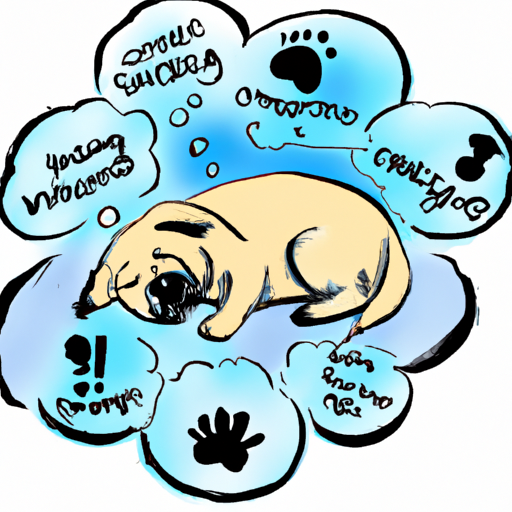We all love our furry companions, but sometimes their nocturnal noises can keep us awake at night. Yes, we’re talking about that adorable, yet disconcerting sound – dog snoring. While it’s quite common, it might leave you wondering, “Why does my dog snore and is it something I should worry about?” Fear not, dear caregiver, as we delve into the world of doggie dreams and explore the causes behind your pet’s bedtime symphony.
1. Anatomy of a Snore
To understand why your dog snores, you first need to understand the mechanics behind the sound. Snoring happens when air movement gets obstructed in the passages at the back of the mouth and nose. The resulting sound is a mix of raspy, wheezy, or harsh noises.
Causes of Obstruction
- Sleeping Position: Just like humans, a dog’s sleeping position can sometimes lead to snoring. Dogs that sleep on their backs are more likely to snore than those that curl up or sleep on their stomachs.
- Obesity: Overweight dogs are more prone to snoring due to the excess tissue in the throat causing obstruction.
- Allergies: Allergies can cause swelling in the throat or nasal passages, leading to snoring.
2. Breed-Specific Tendencies
Some breeds are more prone to snoring than others. These typically include breeds that have brachycephalic syndrome, which describes dogs with shorter noses and flat faces. These dogs have elongated soft palates and narrower airways, making it harder for them to breathe.
| Breeds prone to snoring |
|---|
| Bulldogs |
| Pugs |
| Boxers |
| Boston Terriers |
| Shih Tzus |
3. Medical Conditions
Several underlying medical conditions can cause your dog to snore. These range from respiratory disorders to dental diseases. If your dog’s snoring is accompanied by other symptoms like loss of appetite, changes in behavior, or signs of discomfort, it’s time to visit a vet.
4. Environmental Factors
In some cases, your dog’s surroundings could be causing the snoring. Dust, smoke, or excessive hair around the house can create allergies or respiratory irritation, leading to snoring. A dry environment can also cause a dog to snore due to dryness in the nasal passages or throat.
5. Aging and Weight Gain
Just as in humans, dogs can experience changes in their body as they age. Older dogs, or those who have gained weight, can become prone to snoring. This is often due to excess tissue in the throat or loss of muscle tone, which can cause airway obstructions.
Frequently Asked Questions
Q1: Should I be worried if my dog starts snoring all of a sudden?
While snoring can be normal in some dogs, sudden onset snoring can be a sign of an underlying health issue, especially if it’s accompanied by other symptoms. It’s best to consult with a vet if you notice changes in your dog’s sleeping patterns.
Q2: Can I do anything to help my dog stop snoring?
Yes, there are several things you can do. Maintaining a healthy weight for your pet, keeping your home clean, and using a humidifier can all help. For breed-related snoring, special beds and pillows can help your dog find a more comfortable sleeping position.
Q3: What medical conditions can cause snoring in dogs?
These can include respiratory disorders, throat or nasal passage obstructions, dental diseases, and sinus problems. If you suspect your dog’s snoring is due to a medical condition, consult your vet.
Q4: Is snoring common in certain dog breeds?
Yes, breeds with shorter noses and flat faces, known as brachycephalic breeds, are more prone to snoring. This includes Bulldogs, Pugs, and Boxers.
Remember, while your dog’s snoring might be a harmless quirk, it could also be a sign of an underlying health issue. Always keep an eye out for other symptoms, and don’t hesitate to contact a vet if you’re ever in doubt. After all, as the dedicated caregiver you are, your dog’s health and happiness are your top priority.



